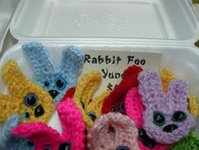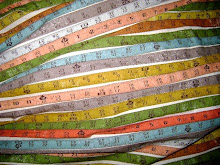hey kids!! Do your Christmas shopping for yourself! and friends and save!!
From Monday 27 November till Fri 8 December there is 20% off everything in store at Dandylion boutique. Thats all fashion, badges, jewellry and even the foxton fizz!
Tuesday, November 21, 2006
Sale! 20% off everything
Craftwerk again !!!




Craftwerk is on again this Thursday evening at the Southern cross garden bar from 5-9 pm. Here are some pictures from the last one- it was awesome!!!
Come along to see loads of cutiepie things from local designers and crafters, share a mix tape, see some local music and sample yummy baking.
See the craftwerk website for more information. - www.craftwerk.co.nz
Eco-FASHION & Dandylion
The fashion industry is notorious for its exploitation of people and our environment and when shopping its near impossible to avoid being a part of the whole thing. Sorry! this is getting depressing! Well - at Dandylion while we dont pretend to be perfect ( we still use commercially produced fabrics) we are trying to bypass a couple of the yuckier problems such as sweatshop labour and the pervasive throw away mentality. Our designers make all their own pieces for decent pay, and many use recycled fabrics and try to buy N.Z made materials where possible.
We aim to sell only very well made items that are more individualistic and not so faddish that your completely over them in 6 months. Iv'e always considered it an unspoken rule but want to make sure everyone knows that at Dandylion qualitys really important and I'll mend for free anything bought at Dandylion within a year of purchase. Its good to get thinking about these issues and following is an article I thought was interesting and is a good introduction to the concept of eco-fashion and whats going on .
Eco-Fashion, by Tanya Davies - Options magazine
"Because of its sheer size, the clothing indusry's impact on global warming is probably larger than all of Africa." Katharine Hamnett
The fashion and textile industry in the US alone is worth an estimated $300 billion. Add to that the rest of the consuming world and thats an awful lot of energy, fabric, dye and sweatshop workers. And whats really sad is that an awful lot of it ends up in landfill within just a few years.
But the fashion industry is at the dawn of a new era. Just as the food industry and toiletries and cosmetic industries have proved, ecological awareness can be big business. British designer Katharine Hamnett launched and ecological line, E, in 2005 and Oscar de la Renta, Diane von Furstenburg and Linda Loudermilk are all working on sustainable lines or pieces in the US. And its not just the high end designers. The UK has a large number of middle range independent labels creating hippy chic, sports and urban wear and in America 100% organic Loomstate are a 'must have' label among stylish greenies.
Melissa Laird, Senior Head teacher of Fashion and Applied studies at the Whitehouse Intitute of Design, is hoping to see more Ausralian designers embracing sustainable practices. 'The traditional fashion roles are based on planned obsolesence, where garments are intended to be out of fashion from one season to the next, forcing people to buy new clothes', she says. So is there any hope that fashion could become sustainable?
Of Australia's independent designers Susan Dimasi and Chantal Macdonald's Material by-product are attempting to create sustainalbe lines by reworking old clothes, and using cloth cutting techniques which minimise waste. Theres also Peter Boyd and Denise Sprinskyj's label S!x, incorporating elements of sustainability, such as re-using and re-inventing fabrics into their designs. And Gabriel Scarvelli has created an excellent reputation for himself using a high percentage of natural fibres and dyes, recycling, and paying bead workers in Calcutta up to 48 times the average wage. But individually recycled pieces are far too costly to point the way forward for the fashion industry. Rather they they are intended to get consumers thinking about their consumption.
At the high street level Hunter Gatherer now have two store, in St Kilda and Fitzroy, selling vintage pieces, accessories and their own label. The 'No sweatshop' accredited label is the initiative of the Brotherhood of St Laurence and all proceeds go back into helping people.
Cotton requires very large amounts of pesticides and water. In addition, cotton farming is increasingly becoming subject to genetic engineering as cotton plants are gene-spliced with a soil bacteria which enables the plant to emit its own pesticide. According to Ronnie Cummins at the Organic Consumers Association, genetically modified cotton crops already account for approximately 60% of all US crops. Unfortunately organic cotton is still relatively difficult for designers to get hold of in Australia and its alternative , hemp, is still way out on the periphery of the fashion industry.
Sue Thomas is a fashion lecturer at the Royal Melbourne institute of Technology. she believes ecological fashion has a great future thanks to the next generation of designers. 'I have found that the push has been very strong from the students who are in their late teens and early twenties, they are not happy about current practices. ' she says. But can we stop consuming? Sue says we can change the way we shop. 'The students are interested in the notion of, not stopping consuming because it just cant stop, but rather revisiting the idea of how often and why. So garments are made very well and are interesting enough that you dont want to bin them after a season and move on to the next silly throw away thing. That this is rather a beautiful thing and you may pass it on.'
(article not copied in full)



